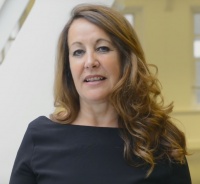
If the media storm around the now infamous Presidents Club dinner has shown us anything, it's that the unequal relationship that exists between many charities and the businesses that fundraise or donate to them needs to change.
The old model of businesses as the benefactors and charities as the grateful recipients of funds is well past its sell-by date. Too often charities are treated as unequal partners in a relationship with funders. All too often charities are seen as having little to offer except the kudos of their brand to help make an organisation look good.
My experience working across various business-led charity projects and also as a commissioner on the Salford Poverty Truth Commission has helped me see how community groups and charities are an integral part of the local landscape, helping meet unmet need and providing support to people that would otherwise fall through the gaps.
The value they add locally is often undervalued even though the difference they make to the lives of local people is huge. Despite the great work they do, many local charities are living hand to mouth, meaning that if a business suddenly pulls the plug on a charity partnership or funding doesn't come through as expected they can easily go under.
So it's no surprise to me that not all of the charities chose to hand back the money raised by the recent Presidents Club dinner. I clout think they should be criticised for this. Most Probably the cash had already been earmarked for deserving projects and they simply couldn't afford to.
Companies great and small need to realise that charities have far more to offer business than just their brand. Charities are enablers they get things done in their local communities and with a more equal relationship they can help drive business success.
There is so much opportunity for business to work with charities that not only have the knowledge of the problems on the ground but also how to best approach solving them. The difference between charity and a true social value model is that everyone benefits - the business, charities and the local community.
A great example of this approach is Manchester-based company Tier 1, which specialises in the ethical and secure disposal of end-of-life IT equipment. Tier 1 has worked with the ANTZ Through the Gate project to support ex-offenders and give them employment opportunities.
Rather than Tier 1 donating to charity in the traditional way, its whole business model is geared to helping the local community - which in turn is leading to them being awarded more contracts. It's a win-win and a great example of how charity and business can work together to solve social problems.
I'm sure after the Presidents Club dinner many charities will now he looking again at where their money comes from to protect their reputation as best as they can. Choosing to forge strategic partnerships with business rather than just looking for funding should be something they seriously consider.